Feb 2021 1st Edition
Feb 2021 1st Edition Londekile
Translations
A better 2021 for all South Africans
A better 2021 for all South Africans SiboneloThe first weeks of the year have been difficult for all South Africans. The coronavirus pandemic has gotten worse, with new infections increasing far faster and far higher than before. Hospitals have been under great strain as more people have needed medical attention.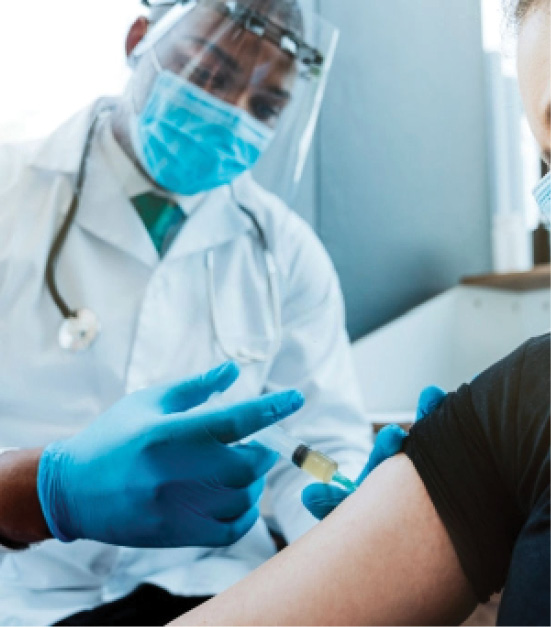
While most economic sectors have been able to operate again for several months, it will take some time for the economy to recover and for lost jobs to be restored. As the new year starts, many families are still feeling the effects of the pandemic on their lives and livelihoods.
The world is now entering the second year of the coronavirus pandemic. For South Africa, as for most countries around the world, the year 2021 will be extremely challenging. The second wave of COVID-19 infections may well be followed by further waves, which will threaten both the health of our people and the recovery of our economy.
Difficult as this year will be, I am certain that we will overcome the pandemic and set our country firmly on the path to recovery.
My confidence comes from the South African people. If I look at how South Africans responded to this crisis from the moment the virus arrived on our shores, I have no doubt that we have the resilience, discipline and ability to defeat this disease.
Certainly there were exceptions, but the vast majority of South Africans understood the need for restrictions on their movement and activities, and complied with the regulations that we had to put in place. Even more important than compliance, most South Africans took responsibility for themselves and for others, following advice on issues like social distancing, wearing a mask and hand washing.
And where we fell short, we have, sadly, seen the consequences. We now know about the risks of closed spaces and crowded gatherings, of not wearing masks and not keeping our distance from others.
This bodes well for the year ahead. We now know much more about the disease and how to prevent its spread. And despite what one could call ‘pandemic fatigue’, we are no less determined as South Africans to do what needs to be done.
As we adhere even more rigorously to the basic prevention measures, we will also be rolling out a mass vaccination campaign. As more and more people are vaccinated, we will both save lives and progressively reduce the risk of infection across the population.
Getting enough vaccines as quickly as possible – and making sure that they reach the people who need them – will be one of the biggest tasks of the year. This will be particularly challenging as every country in the world is clamouring to secure a limited supply of vaccines. But we are hard at work with partners in business, labour and civil society to make this happen. We are working on several fronts to get vaccines, including through the global COVAX facility, the African Union initiative and through our own engagements with vaccine manufacturers.
As we act together to overcome the pandemic, we will need to work together to rebuild and transform our economy. We have both the ability and the will to stimulate economic activity, grow our economy and create jobs. And to do so in the midst of a pandemic.
Public finances are under extreme strain, now even more so because of the cost of our health response to COVID-19 and the social and economic relief measures we put in place to assist businesses and poor households. The contraction of the economy also meant that tax revenue has declined significantly. There are some parts of the economy that will take longer to recover due to lower global demand generally and restrictions on international travel.
That is why we need to be innovative and focused in our plans to rebuild the economy. Significantly, the Economic Reconstruction and Recovery Plan that we announced in October last year is based on broad consensus among all social partners on the actions needed to rebuild the economy. This lays a firm basis for effective cooperation that draws on the resources, capabilities and energies of all sections of society.
We are seeing this in various practical ways. For example, we have been working closely with private funders and multilateral development institutions to prepare infrastructure projects in areas like transport, human settlements, water and telecommunications. Using the Infrastructure Fund as one of the vehicles, we are developing funding models for these projects that draw on several sources in both the public and private sectors. This is particularly important at a time when public finances are limited.
The Presidential Employment Stimulus is another example of partnership in action. Understanding that it will take time for economic growth to translate into private sector employment, we have launched the employment stimulus to start creating work opportunities now. This programme is being coordinated from the Presidency, but is being implemented by a range of government departments and different spheres. Through this programme, tens of thousands of unemployed people are able to both earn and learn as they provide valuable social services.
In time, this programme will include a ‘social employment’ part, where we will partner with other social actors to employ people in a variety of activities – from improving food security, to tackling gender-based violence to upgrading informal settlements – that all contribute to the common good.
All this work is being reinforced by an aggressive focus on those economic reforms that will have the greatest focus on growth. These include the expansion of electricity generation capacity, making our ports more efficient and competitive, improving access to affordable broadband, and improving turnaround times for water, mining and other licenses. These efforts are being coordinated and monitored jointly by my office and National Treasury.
There is much to be done in the year ahead. And we should be in no doubt that we will have to confront many daunting challenges.
But we have shown that, as a nation, we are able to succeed when we work together in pursuit of a common purpose.
If we remember that, and if we put our unity into action, we will ensure that 2021 brings better health and better lives to all our people.
I wish you all the best for the new year.
Bringing free WiFi to communities
Bringing free WiFi to communities UrsulaMaking the internet more accessible to underserviced communities has been identified as a key priority for South Africa’s economic recovery after the devastating impacts of the Coronavirus (COVID-19) pandemic. 
An organisation called Think WiFi realises how important this issue is, and is making the internet freely accessible to thousands of people around the country.
Think WiFi was started by Marnus Kruger and his wife Jeanine in 2018. The non-profit organisation has built more than 200 free wireless internet sites in underserviced communities in the Western Cape, Eastern Cape, Gauteng and Mpumalanga.
“We come from the telecoms world and in 2018 we found the opportunity with Google Station to start providing free WiFi across South Africa. Unfortunately, the Google Station project was stopped, but we made the decision to keep on going,” says Kruger.
“We view the internet as a basic human right. We have seen that the bulk of South Africans have to pay a lot for data, but through Think WiFi, we have seen how we can make a positive change. Not only are people able to save money to use to buy more food and pay for the education of themselves or their children, but they can also become more digitally aware and use the internet to find work opportunities and other educational tools.”
Think WiFi employs three community development officers who engage with community leaders to start up the free WiFi hotspots. The organisation also runs a youth ambassador programme, in which young people are employed to help the rest of their community to make full use of the internet, teaching them things such as setting up an email account.
Jerome Daniels is a community leader in the settlement of Blikkiesdorp in Delft, Cape Town. He says Think WiFi has been a massive help to both adults and children.
“The people in the community previously had to spend a lot of money on data, and it was very difficult for them to access the internet. It has been especially nice to see that the children in Blikkiesdorp are using the internet now to improve their schoolwork. And adults have also used the free WiFi to find work and to do online courses.”
Busting the myths
Busting the myths LondekilePeople with albinism do die. They do not have superpowers. Their blood can’t heal others and their body parts will not make you rich.
“They also do not represent an ancestor,” says Dr Khensani Ngobeni-Mkize, a Mbombela-based specialist dermatologist (skin doctor).
“Albinism is a group of inherited genetic disorders in which there is reduced or no melanin production in the skin, hair and eyes,” she adds.
Melanin is the pigment that gives human skin, hair and eyes their colour.
“The only difference between a person with albinism and person without it, is the lack of colour. Due to reduced melanin, they have problems with their eyesight and prefer being in the shade because they are sensitive to the sun,” says Dr Ngobeni-Mkize.
There are two forms of albinism, oculocutaneous (affects the skin and eyes) and ocular (affects eyes only).
Dr Ngobeni-Mkize urges parents of children with albinism to empower their child. “See an eye specialist, make sure they get a proper education, encourage them and help educate the community about albinism. This is very important to stop the stigmatisation and discrimination.”
Sun protection is vital
Melanin is important because it creates colour in the skin, hair and eyes, which protects them against the damaging rays of the sun.
It’s vital that people with albinism protect themselves from the sun to avoid skin cancer. A skin sore could be cancer if it changes, grows, bleeds, will not heal, or is painful or itchy. They should also have their skin checked every six months and have their eyes checked by an eye doctor, who can provide them with glasses that can improve, but not cure, their eyesight.
Protect yourself from the sun by:
- Wearing a broad-brimmed hat.
- Wearing a light scarf or shirt with a collar to protect the neck.
- Applying broad-spectrum sunscreen, with UVB and UVA protection, that contains minerals and is water resistant. Apply sunscreen 20 minutes before sun exposure and re-apply frequently.
- Avoiding the sun between 10am and 3pm.
- Drinking water.
- Eating a well-balanced diet.
Care and protection for child refugees
Care and protection for child refugees UrsulaChildren are among the most vulnerable members of society and it is our shared responsibility to protect, nurture and care for them. 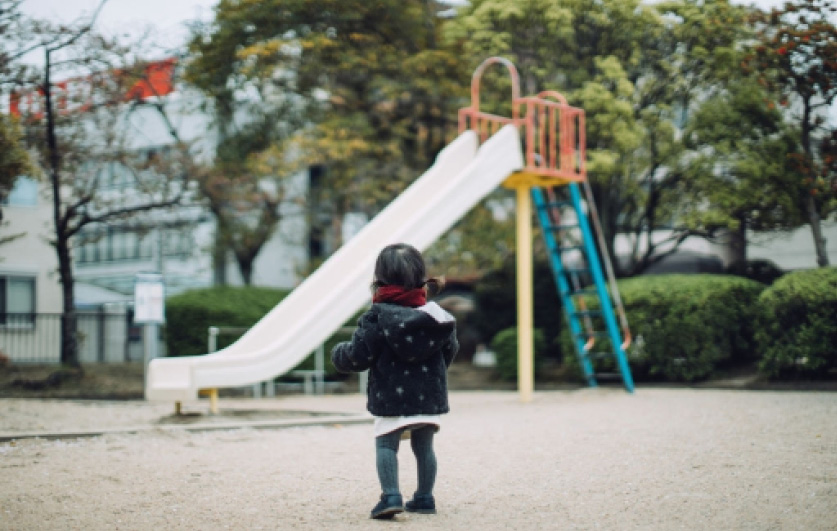
This is according to the Minister of Social Development, Lindiwe Zulu, who recently launched the European Union (EU) Global Promotion of Best Practices for Children in Migration or Children on the Move.
“Children in migration or children on the move are particularly vulnerable to exploitation, abuse and neglect,” says Minister Zulu.
The programme was launched in partnership with the EU and United Nations Children’s Fund to help provide for the basic needs of unaccompanied and undocumented minors living in South Africa.
It is envisaged that the R19 million initiative will improve access to integrated child protection services and alternative care options to avoid the detention of children.
It is estimated that there are 642 000 migrant and refugee children in South Africa, making it the country with the largest child migrant population on the continent.
“We owe it to our children, irrespective of their nationality, to ensure that we build a caring society that enables each child to reach their full potential in all areas of their lives.
“Every child has the right to life, survival and development. We expect this for our children, and we should accept no less for refugee children,” the Minister says.
Over the years, South Africa has experienced the migration of unaccompanied and undocumented children from Zimbabwe, Lesotho and Mozambique.
“As a country, we view this as a humanitarian issue, rather than a matter of border control, because children migrate for a variety of reasons,” Minister Zulu explains.
To protect and promote children’s rights, Minister Zulu says it is every citizen’s obligation to ensure that all children on the move are treated with dignity and respect, and any instances of abuse and exploitation must be reported and investigated.
The department established the national steering committee on unaccompanied and separated children to address this. The committee aims to:
- Develop and implement common standard operating procedures to ensure the coordination of services, and
- Find long-lasting solutions and ensure the right to protection, safety and dignified repatriation for unaccompanied and separated children.
The department has also signed cross border collaboration with Lesotho, Mozambique, eSwatini and Zimbabwe.
Farmers help grow community knowledge
Farmers help grow community knowledge LondekileA group of elderly farmers from three Limpopo local municipalities are learning new practical farming skills, thanks to the Farmer Field School concept adopted by the provincial Department of Agriculture and Rural Development.
The programme targets the Greater Letaba, BaPhalaborwa and Maruleng local municipalities and aims to promote food security by teaching the elderly how to farm and use good food production practices.
The programme – running in the villages of Maphalle in Greater Letaba, Benfarm in Ba-Phalaborwa and Lorraine in Sekororo – enables more experienced farmers to teach members of their community how to grow the best food possible.
Ivy Moagi of the Lorraine Farmer Field School says they have been trained in crop and vegetable farming. “Through a combination of indigenous and scientific practices, we manage to produce food for our families,” she says.
Crops include potatoes and maize. What is left over after feeding the participants’ families is sold at local markets, says Moagi.
The farmers say they have figured out a system that enables them to overcome their differences and work together so they learn from one another.
Farmer Field School participants say the programme is not without its challenges. They explain that they battle to market their produce. “Although at this stage we are not producing large quantities of crops, we already have a challenge with our small surplus.”
The learners of the ‘school without walls’ say they are proud of the fact that they are responsible for producing their own food and source of income.
The Farmer Field School concept is supported by the national Department of Agriculture, Land Reform and Rural Development (DALRRD), which hopes to expand the programme nationally to help ensure a food-secure population. Extension officers from the department are now involved in farmer training.
People who want more information about the programme, can contact the national agriculture department by calling 012 319 6000, going to the website www.dalrrd.gov.za, or visiting their nearest DALRRD office.
Helping children to learn at home
Helping children to learn at home UrsulaLittles ones are being given a headstart in life, thanks to easy-to-use activity sheets that are being made available to parents, free-of-charge. 
With many children ages five and below not being able to access early childhood development (ECD) centres, particularly during the Coronavirus (COVID-19) pandemic, government is working in partnership with other organisations to give caregivers access to free learning materials that can be used at home.
The Department of Social Development, together with the Department of Basic Education and UNICEF South Africa, have developed the Tshwaragano ka Bana: Let’s Play, Learn and Grow Together programme, to help children stay busy, while learning the essential skills they need for their early development.
The materials are provided in the form of activity sheets which can be downloaded from government and UNICEF’s platforms, and have also been printed out and distributed to parents by ECD centres, or sent to them over WhatsApp.
There are 12 activity sheets available, which cover everything from planning a child’s daily routine, to learning about shapes, healthy eating habits, exercise through play, proper hygiene, counting and other essential topics. The sheets have been translated into all 11 official languages.
The activities are based on the National Curriculum Framework for Children aged from birth to four years, the National Integrated ECD Policy, CAPS for Grade R, as appropriate, and other appropriate resources for this age group.
“The early learning activities are playful and can be easily incorporated into daily routines using low-cost/no-cost resources. The activity sheets enable parents to support the early learning and development of their children while at home,” explains UNICEF South Africa representative Christine Muhigana.
Through the programme, early childhood development learning materials have reached over 683 000 parents and an estimated 940 000 children under five.
Tebogo Bonolo, owner of an ECD centre in Nelson Mandela Bay, says Tshwaragano ka Bana was a huge help for parents to keep up with the education of their children during lockdown.
“The sheets are very easy for parents to understand and to work through with their children,” says Bonolo.
*To download the Tshwaragano ka Bana activity sheets, parents or ECD practitioners can go to the UNICEF South Africa website at unicef.org/southafrica
Helping victims of GBV get justice
Helping victims of GBV get justice SiboneloFree legal help is available for GBV victims.
There is help at hand for victims of gender-based violence (GBV) who cannot afford legal services.
The South African Women Lawyers Association (SAWLA) is a non-profit and non-political organisation consisting of female lawyers who assist women and girls who are in need of legal services but cannot afford them.
The organisation’s Secretary General Mpho Kgabi says SAWLA is actively participating in the National Strategic Plan on GBV and supports initiatives that seek to curb GBV.
“We are making sure that all women who are subjected to GBV and cannot afford lawyers are assisted by SAWLA members for free,” says Kgabi.
The purpose of the organisation is to transform the legal profession, empower female lawyers and give a voice to all women.
“SAWLA believes that the South African society is still steeped in patriarchal attitudes that continue to blame victims and survivors of GBV instead of confronting the perpetrators,” says Kgabi.
To address this challenge, Kgabi says the organisation is committed to advancing human rights and equal justice for all, and is active in safeguarding women’s and girls’ rights to eradicate GBV and build a better country.
SAWLA also provides criminal defence, divorce and domestic violence services and sources its expertise according to its members’ needs.
“We have 250 members, some of whom are self-employed as attorneys or advocates. Others are employed by government, state-owned enterprises (SOEs) and corporate companies. Others are magistrates, prosecutors and law students,” says Kgabi.
It also partners with the Department of Justice and Constitutional Development and the Department of Women, Youth and Persons with Disabilities.
SAWLA also works closely with SOEs like the Commission for Conciliation, Mediation and Arbitration; Legal Aid South Africa; Black Lawyers Association; National Association of Democratic Lawyers; and Women of South Africa.
For more information, email SAWLA at president@sawla.net, mphok@legal-aid.co.za or secretary@sawla.net.
How do I know I have recovered from COVID-19?
How do I know I have recovered from COVID-19? UrsulaThe National Institute for Communicable Diseases says guidelines should be followed by an individual who tested positive for COVID-19 before they come out of isolation. 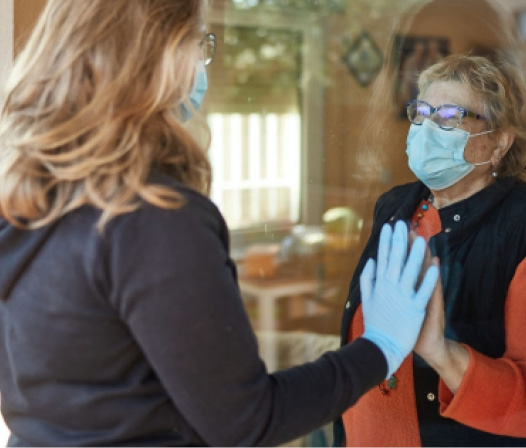
Symptomatic patients who test positive for the virus, but only have mild symptoms, can come out of isolation 10 days after their symptoms started if they don't have a fever and their symptoms have improved.
Hospitalised patients with moderate-severe
disease can come out of isolation 10 days after they start showing improvement. This is when patients no longer need supplemental oxygen.
Asymptomatic patients are people who have tested positive for COVID-19 but do not show any symptoms. These individuals come out of isolation 10 days after their test.
Repeat testing for COVID-19 is not required to de-isolate and is not recommended.
It is common for patients to continue to have symptoms for longer than 10 days. Full recovery may take several weeks for some patients, especially for symptoms such as fatigue, cough and anosmia (loss of sense of smell).
Patients admitted to hospital can continue their isolation period at home or at an isolation facility once clinical stability has been achieved.
When can employees return to work after testing positive for COVID-19?
- 10 days after they started showing symptoms.
- 10 days after clinical stability or when a patient no longer needs oxygen support in cases of severe disease.
- Testing for COVID-19 is not required for the return to work (exception: if a person remains asymptomatic in quarantine after a high-risk exposure to a confirmed COVID-19 case. A test should be done when assessing the employee for early return to work on day 8 post-exposure.
This information was supplied by the National Institute for Communicable Diseases. https://www.nicd.ac.za
June 2021 examinations scrapped
June 2021 examinations scrapped SiboneloThe Department of Basic Education has adapted to meet the challenges brought on by the Coronavirus pandemic.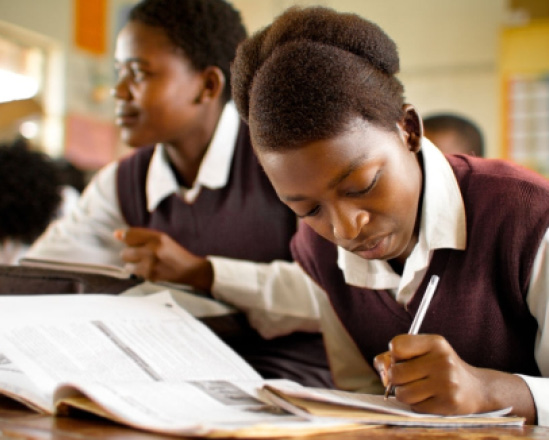
Basic Education Minister Angie Motshekga says the June 2021 examinations will be scrapped and replaced with controlled tests during the year.
She says this is one of the things that will be done differently in 2021 as a result of the lessons learnt from the 2020 school year, which was badly affected by the Coronavirus pandemic.
The Minister says the time that would have been set aside for the June exams will now be used as additional teaching time.
“Ongoing collaborations with partners such as the National Education Collaboration Trust will ensure that content produced for television and radio stations, internet and, mobile applications continue to be developed and improved for learners to watch after school or on weekends,” the Minister says.
She adds that the department’s curriculum branch is developing teaching plans that will address teaching overload, among other things. The Minister explains that the plans are part of a three-year recovery plan, which will address learning losses incurred from the 2020 academic year.
“Redundant content and concepts will be omitted from the curriculum.”
There will also be more focus and emphasis on formative assessments to ensure that meaningful teaching takes place.
Rolling out ICT
To ensure that the rolling out of ICT in schools continues, the Minister says various initiatives are being employed, including:
- 4 697 mainstream schools received ICT solutions and the roll out of ICT in 447 special schools is underway.
- Offline solutions with intranet are being rolled out in areas with poor or no internet connectivity, through the Department of Basic Education's e-Library solution and other initiatives from partners like the Thabo Mbeki Foundation.
- Virtual classrooms/online schools have been established through partnerships to reach remote learners.
- Electronic Communications Service licensees are in the process of zero rating local education content websites; 365 applications have already been processed.
- The department has trained and placed 100 000 e-cadres in schools.
- The Department of Communications and Digital Technologies will establish virtual classrooms in 76 districts, offering live and recorded lessons. Pilot projects have started in 16 schools.
KZN farmers to benefit from support package
KZN farmers to benefit from support package LondekileA R57.2 million support programme is enabling small-scale farmers in KwaZulu-Natal (KZN) to buy the tractors, implements, fertiliser, seeds and seedlings needed to make their farms commercially successful.
Speaking at the launch of the Farmer Support Package (FSP) initiative in Dondotha, uMfolozi , KZN MEC for Agriculture and Rural Development Bongiwe Sithole-Moloi said the FSP will help the province go back to the basics of producing its own food by providing dedicated and efficient support to potential commercial farmers.
She said the FSP will be the engine that powers the growth and development of multi-planting season campaigns, which will see under-utilised land being better used to grow food.
The FSP will enable communities to fight poverty and hunger by cultivating the land available in their villages and backyards.
Sithole-Moloi said food insecurity remains a critical challenge affecting people’s social conditions due to rising unemployment, poverty and inequality.
“The introduction of the FSP today, is a clear statement that we are determined and stand ready to provide a dedicated and efficient support package to all the agricultural value chains that are key drivers to the province’s sustainable economic growth and transformation,” she said.
The MEC said the province wants to see the mass production of food by local farmers and would support this by giving material support to emerging farmers.
Sithole-Moloi said buying existing commercial farms is not the only way to enter the agriculture sector. Another way, she said, is by using ‘the very land available in our villages and our backyards’.
The package will help ramp-up agricultural production in KZN, following a decline of 7% in the last quarter.
“These figures affect commercial, emerging and small-scale farming. In line with this, the department has assessed at least 39 land reform farms as part of the multi-million rand farmer support package aimed at claiming back to production over 772 million hectares of arable land lying fallow on over 1 200 farms province-wide, this year,” she said.
KZN farmers wanting more information can visit their nearest Department of Agriculture and Rural Development office, call 033 355 9100 or visit www.kzndard.gov.za.
Mass COVID-19 vaccine roll-out programme takes shape
Mass COVID-19 vaccine roll-out programme takes shape SiboneloPresident Cyril Ramaphosa has stressed that getting enough COVID-19 vaccines as quickly as possible – and making sure that they reach the people who need them – is one of government’s biggest tasks this year.
South Africa’s mass Coronavirus Disease (COVID-19) vaccination programme is set to speed up herd immunity when the first batch of one million Oxford University-AstraZeneca vaccines arrives from the Serum Institute of India (SII) in January.
The second batch of 500 000 vaccines is due to arrive from the SII in February, says Health Minister Zweli Mkhize.
The aim of the vaccination programme is to achieve herd immunity across the population, says President Cyril Ramaphosa.
“When enough people are vaccinated, we will reach what is known as ‘herd immunity’ or ‘population immunity’. This is when enough of the population is immune to the virus to provide indirect protection to those who aren’t immune, bringing the spread of the virus under control.
“While the actual level needed for herd immunity is not known, our scientists estimate that we will likely reach herd immunity once around 67% our population is immune. This amounts to around 40 million people,” he explained.
To achieve this, government has put a mass vaccination strategy in place.
Vaccination strategy
The vaccination strategy has three parts. Firstly, to get enough vaccines to reach herd immunity.
“We are in the process of procuring vaccines through three channels – the World Health Organisation’s (WHO) COVID-19 Vaccine Global Access Facility (COVAX), the African Union’s vaccine initiative and direct engagements with vaccine manufacturers,” the President said.
He explained that South Africa will receive vaccine doses for around 10% of the population through COVAX and, while talks are still being finalised with a number of manufacturers, government has already secured over 30 million doses that will be delivered mainly in the first half of the year. This includes the nine million vaccines recently secured from Johnson & Johnson.
The second part of the vaccine strategy is to identify who will be vaccinated and when. In Phase One, frontline health workers will be prioritised. “These vaccines will not only be focused on doctors and nurses, but all staff at medical facilities,” says Minister Mkhize.
In Phase Two, essential workers such as teachers, police, municipal workers, taxi drivers and other frontline personnel; people in institutions such as old age homes, shelters and prisons; and people over 60 and adults with co-morbidities will be prioritised. “We plan to reach around 16 million people in this phase.”
In Phase Three, about 22.5 million of the remaining adult population will be vaccinated. We should then have reached herd immunity. The target is to vaccinate 67% of the population by the end of 2021.
The third part of the strategy is to distribute and administer vaccines throughout the country.
On 19 January, President Ramaphosa announced that an inter-ministerial committee on COVID-19 vaccines has been established and is being chaired by Deputy President David Mabuza. The committee will help ensure a smooth vaccine distribution process and ensure that key government departments play their role.
“Vaccinations will be administered through hospitals, clinics, outreach services and mobile clinics, and private settings such as doctors’ offices, pharmacies and workplaces,” the President said.
Government has also engaged stakeholders to ensure a coordinated and inclusive vaccination campaign, and an inclusive partnership has been formed between government, medical schemes and the private sector to support vaccine acquisition, funding and distribution.
Is the vaccine safe?
Government is selecting vaccines based on their safety and effectiveness, ease of use, storage, distribution, supply sustainability and cost.
Every vaccine used in the programme has to be approved by the South African Health Products Regulatory Authority. The Oxford University-AstraZeneca vaccine has already been approved by various regulators around the world and is being rolled out in other countries.
COVID-19 vaccines go through a demanding, multi-stage testing process, including large trials that involve tens of thousands of people. These trials, which include people at high risk for COVID-19, are specifically designed to identify any common side effects or other safety concerns.
Once a clinical trial shows that a COVID-19 vaccine is safe and effective, a series of independent reviews is required, including regulatory review and approval in the country where the vaccine is manufactured, before the WHO considers a vaccine for prequalification.
An external panel of experts convened by the WHO analyses the results from clinical trials, along with evidence on the disease, age groups affected, risk factors for disease and other information. The panel recommends whether and how the vaccines should be used.
Minister Mthembu: A great leader has fallen
Minister Mthembu: A great leader has fallen Londekile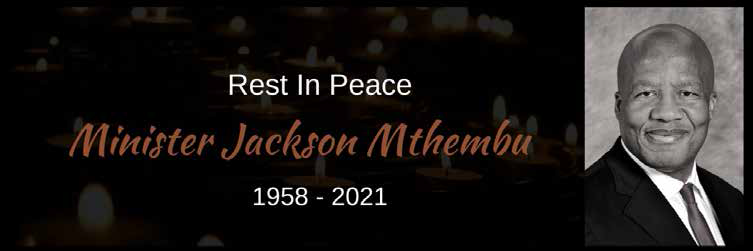
The nation mourned on 21 January when Minister in the Presidency Jackson Mthembu (62) passed away from complications related to the Coronavirus Disease (COVID-19).
On 11 January, he announced that he had tested positive for the virus after seeking medical assistance for abdominal pain. “I want to thank the many South Africans who have wished me a speedy recovery,” he said.
His death 10 days later was another grim reminder of the realities of the pandemic and the need for South Africans to unite against this common enemy.
The Minister was very involved in government’s fight against the pandemic and was at the forefront of its COVID-19 communications.
“Minister Mthembu was an exemplary leader, an activist and life-long champion of freedom and democracy. He was a much-loved and greatly respected colleague and comrade, whose passing leaves our nation at a loss,” said President Cyril Ramaphosa shortly after Minister Mthembu’s death.
A humble servant
South Africans from all walks of life united in paying tribute to the statesman, who was described by many as a humble servant of the people who was known for his dry sense of humour.
“He died with his boots on, at the forefront of the fight against the invisible enemy. It is not a surprise that he was deployed in the Presidency. We are very saddened by his passing,” said North West Premier Job Mokgoro.
Born and raised in Emalahleni in Mpumalanga, Jackson Mphikwa Mthembu was an anti-apartheid activist who was part of the student movement in the 1970s, both at high school where he was a student leader and later at the University of Fort Hare, from which he was eventually expelled because of his political activities.
The Minister was part of the establishment of the metalworker unions in South Africa. While at Highveld Steel Corporation, he was one of the first black steel production foremen in the industry.
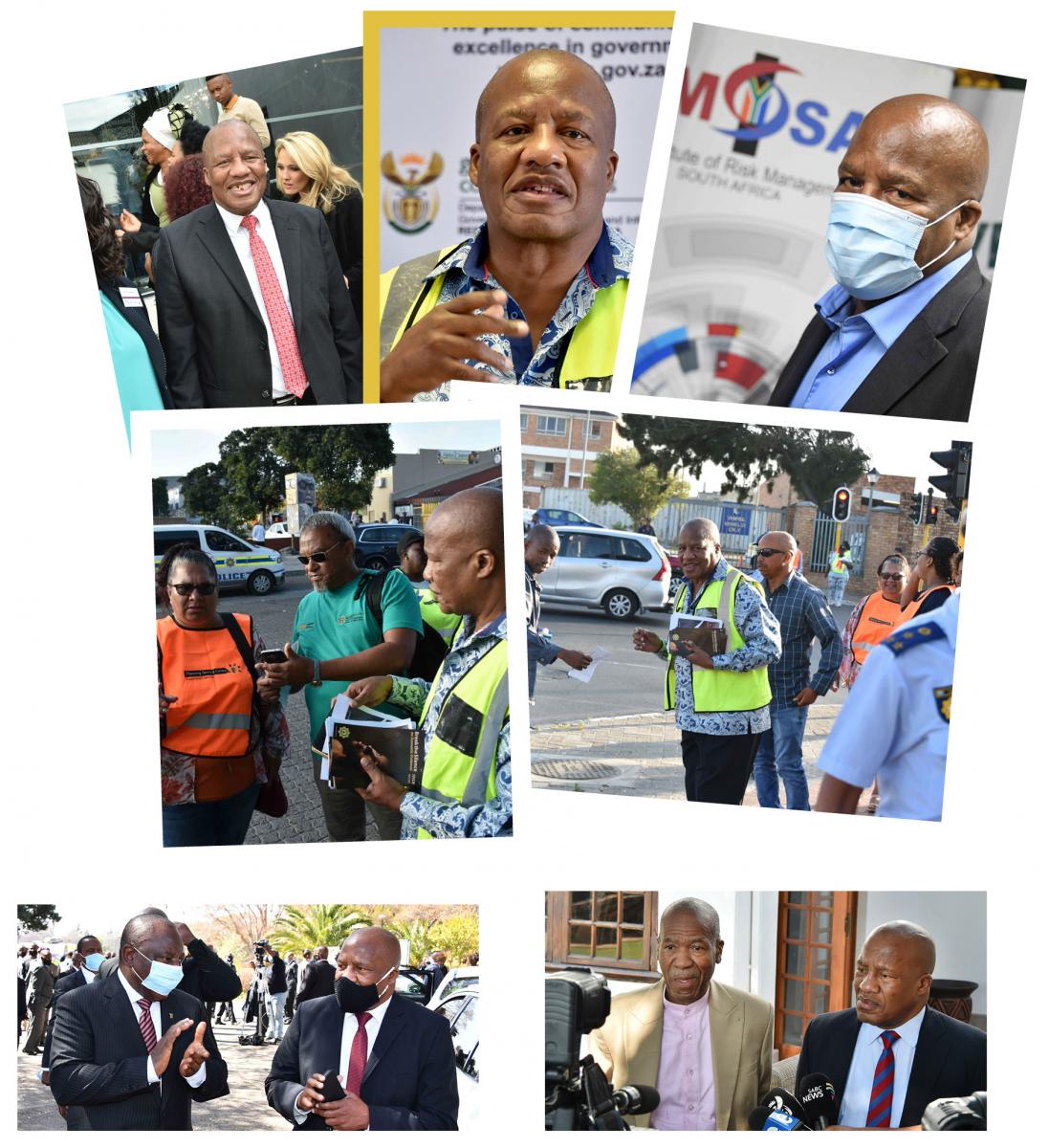
He continued his activist work and during the state of emergency in the 1980s, he was detained without trial by the apartheid government. During this time, he was mostly kept in solitary confinement. He faced much persecution, including the petrol bombing of his house in Witbank, being repeatedly tortured at police stations and being charged with sabotage, treason and terrorism.
He was among the 30 accused in the Bethal terrorism trial in the late 1980s and although he was acquitted, the harassment continued. Eventually, Minister Mthembu left Witbank to live life in ‘internal exile’ in Soweto and Alexandra, away from his family and loved ones.
While in Gauteng, he served in the United Democratic Front under the leadership of the late Mama Albertina Sisulu.
After the unbanning of political parties in South Africa in 1990, he played increasingly prominent roles in the ANC. In the early 1990s, he was the ANC spokesman in Mpumalanga and later became the province’s Public Works, Roads and Transport MEC.
The Minister helped lay many of the building bricks for South Africa’s democracy. He participated in the Convention for a Democratic South Africa negotiations and was part of the team that helped draft the Constitution in the Constituent Assembly.
In 1995, he became the national spokesperson of the ANC under then President Nelson Mandela. He resumed this role over a decade later, serving from 2009 to 2014.
The Minister was part of the ANC National Executive Committee from 2007 and served as the Chief Whip of the ANC in the National Assembly from 2016 up to the end of the fifth term of parliament in 2019, when he was appointed as the Minister in the Presidency.
Kind and generous spirit
Minister Mthembu, whose family home is in Mbombela, leaves behind his wife Thembi and five children.
“A giant tree has fallen. A communicator par excellence and an even better man. He was always friendly and shall be missed for his kind and generous spirit,” said Health Minister Zweli Mkhize, adding that the Minister was determined that people understand what is going on with COVID-19.
In October, Minister Mthembu was quoted as saying: “Let us join hands as a people to usher in a period of a caring and more just society, free of poverty and inequality and to defeat not only the COVID-19 pandemic but the social ills that we confront, like corruption, as we build a better life for all.”
“Minister Mthembu was an exemplary leader, an activist and life-long champion of freedom and democracy.”
Musician uses her voice to fight GBVF
Musician uses her voice to fight GBVF UrsulaBuhlebendalo Mda is a musician and gender activist who fights for equal rights for all genders. 
The Soweto-born artist is the co-founder of the double platinum-selling South African group called The Soil, which was formed over a decade ago during her high school days. The group has won several awards and is recognised internationally.
In light of the continuous abuse of women in South Africa, Mda says she uses music and visuals to speak out against gender-based violence and femicide (GBVF).
“Social media has become a powerful tool to express what is in the spirit,” says Mda, who is also a traditional healer.
“I am an all-round creative. I am a healer in all aspects. My music does not just require understanding but allows people to surrender to a space of acceptance. Whoever seeks healing and alignment with self, needs to listen to my music,” she says.
Although she cannot put a date to when she became a gender activist, Mda says she has always stood for equal rights, especially for women.
“I have always been outspoken and firm about my beliefs,” she says.
She uses her celebrity status to promote the rights of women by talking openly about issues that need to be addressed.
“I personally feel that our leadership is not doing enough to protect the rights of women in our country. I sometimes do not blame them because the same leadership has women in ‘deputy’ positions. Women are not given the platform to lead entirely. So, should things change there at the top, maybe we will start having women-to-women conversations,” she says.
Additionally, Mda believes that some cultural and religious traditions are the biggest setbacks in the transformation of South Africa as a society.
“We are not fond of change. The systems have chained our minds to a point where cannot see past our colonisation. However, I am excited to be part of a generation that stands for truth and change. A generation that questions and is willing to unlearn everything that was forced down our throats,” she says.
Besides being the only female member of The Soil, Mda is also a soloist.
NGO supports young and old
NGO supports young and old UrsulaA financial literacy and information and communication technology (ICT) skills development programme for youth in Mabopane in Tshwane, Gauteng, is producing tech-savvy youth. 
The Ngwana Koko Foundation offers a financial literacy programme for youth, accredited by the Financial Sector Conduct Authority (FSCA); facilitates ICT training through an online IBM course in coding, software, app development and data analytics; and assists the elderly in need.
The founder of the foundation, Karabo Mthimkhulu (26), says he and his partners, Palesa Kwinana (21) and Nelisiwe Mnguni (25), started the programme to assist unemployed youth. Those who have completed the programme have been able to secure jobs or start their own businesses, he confirms.
“The financial literacy programme helps young people learn the importance of saving and how to live within one’s means. The training is done by a financial advisor, accredited by the FSCA. Participants receive a certificate once they have completed the IBM programme,” he says.
Kodisang Moikanyane (29) started Palibe, a business advisory company, with the knowledge he gained from training through Ngwana Koko. He says his two-year-old company offers business analysis and other solutions.
“The course taught me about investment, running an efficient business and having financial security for a rainy day.
“We also create software that businesses can use in their day-to-day operations. I recently created software for a private college, which works as an attendance register for students. It also records when a student arrives and leaves school,” he says.
The foundation also helps the elderly in old age homes and those who live alone, by cleaning, donating food and helping them to get their medication prescriptions refilled.
“There are a lot of elderly people who live alone and we felt that it was important to assist them. The support we give them shows that they are also cared for. We, as a society, must show them love,” says Mthimkhulu.
The foundation is funded by the Department of Social Development.
New app helps save lives
New app helps save lives LondekileSeeing a stabbing victim bleeding on the Durban beachfront despite two stationary ambulances nearby, prompted Blessing Nzuza, (30) to develop a potentially life-saving app.
The mobile app, called Respo, links ordinary South Africans with ambulances, regardless if they have medical aid or not.
“The incident got me thinking that we needed to create a system that allowed people in emergencies to contact ambulances, even when they are not able to place a phone call,” Nzuza says.
Respo enables users to request an ambulance during a medical emergency by simply opening the app and pushing a button. Even people without smartphones are able to access the app’s functions, through a recently added panic button feature.
Once a user activates the emergency button, the team from Respo calls them to establish the nature of their emergency and if necessary, an ambulance is dispatched. If the person does not answer their phone, Respo immediately informs its partner, ER24.
GPS tracking is used to locate users in emergencies and emergency service providers are given essential information about the patient, such as existing medical conditions and their medical aid, should they belong to one. This information is provided by users when they install the app. They also list their emergency contacts, who are alerted in cases of emergency.
The app was developed by Nzuza using a R487 000 grant from the Technology Innovation Agency (TIA), which is a government agency that helps develop innovative projects in the natural resources, energy, information communication and technology and advanced manufacturing fields.
Projects are funded from the conception stage right to when the product is commercialised.
Once his app was developed, Nzuza successfully pitched for R1 million in funding from the Small Enterprise Finance Agency (Sefa).
He says: “The funding from Sefa gave us the capacity to market the app. We used the money to form a partnership with ER24.”
Nzuza currently employs four permanent staff members and 20 temporary agents, whose job it is to respond to incoming emergency alerts.
For information on funding for entrepreneurs;
- Visit Sefa’s website at www.sefa.org.za, call 012 748 9600 or visit one of the nine regional offices.
- For more information about the TIA, send an email to customerservice@tia.org.za, call 012 472 2700 or visit their website: www.tia.org.za.
Opportunities for emerging entrepreneurs
Opportunities for emerging entrepreneurs UrsulaThe National Youth Development Agency (NYDA) is hard at work to open doors of opportunity for young entrepreneurs. 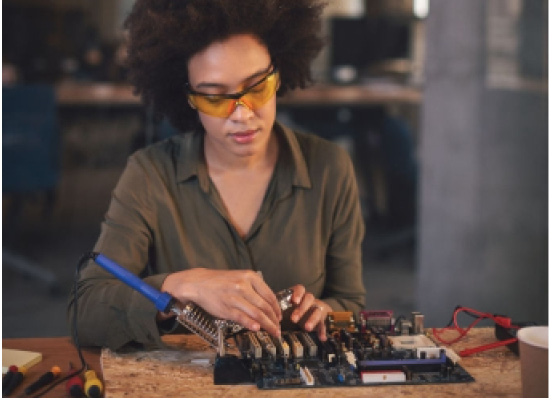
According to the NYDA, its Market Linkages Programme assists young entrepreneurs by enabling them to access business opportunities that exist within their provinces, both in the public and private sector.
“Through this intervention, it is envisaged that the participation of young people in the country's mainstream economy will be increased and the government’s objective of broadening economic empowerment among historically disadvantaged individuals will be advanced,” says the NYDA.
The Market Linkages Programme supports start-ups and existing businesses by actively engaging with potential opportunity providers and lobbying them to avail business opportunities to youth-owned businesses.
Any young person between the ages of 18 and 35, who has a registered business and is a beneficiary of the NYDA, automatically qualifies for this opportunity. However, they need to ask for their business to be linked to another business within a market similar to theirs.
The programme is a component in the economic development support services and complements other programmes, such as the grant, voucher and volunteer enterprise mentorship programmes.
The NYDA Voucher Programme provides young entrepreneurs with business development opportunities. Participants receive one-on-one business development support, between the values of R6 600 and R19 800, from an NYDA-accredited service provider.
The NYDA Grant Programme provides entrepreneurs an opportunity to access both financial and non-financial business development support to establish their survivalist businesses. The grant finance starts from R1 000 to a maximum of R200 000 for any individual or youth co-operative, but for agriculture and technology-related projects, the maximum amount is R250 000.
The Volunteer Enterprise Mentorship Programme provides mentorship support to youth businesses. Mentors and young entrepreneurs are assessed, qualified and matched to form an ongoing mentoring relationship aimed at improving the sustainability and growth of start-ups or existing businesses owned by young South African entrepreneurs.
For more information, contact the NYDA's switchboard: 087 158 6345 / 5738 or customer service: 087 158 4742 or email: info@nyda.gov.za
Parenting a child with epilepsy
Parenting a child with epilepsy LondekileWhile it may be a shock for a family to learn that a child has epilepsy, you can build an understanding, loving and accepting environment in which your child can grow and believe in their ability to succeed.
According to Epilepsy South Africa, parents could be concerned about their child’s future and find epilepsy difficult to accept or talk about. You may feel angry, depressed, inadequate and guilty, but you can overcome these feelings and your anxiety by educating yourself about the condition.

Epilepsy is the tendency to have recurrent seizures, which occur when there is an abnormal electrical discharge in the brain.
Why my child?
Understanding epilepsy and why seizures occur doesn’t explain why this happened to your child.
In approximately 66% of cases, the underlying cause of epilepsy is unknown. This is referred to as idiopathic epilepsy. In the remaining cases the underlying causes can be identified, which is known as symptomatic epilepsy.
There can be a variety of underlying causes such as a head injury, that can occur at any age; a birth injury, such as a lack of oxygen during birth; fever convulsions, encephalitis, meningitis or childhood measles; and metabolic or biochemical disturbances or imbalances.
A doctor will prescribe medication based on the age, physical condition and type of seizures your child has. Remember, anti-convulsant medication does not cure epilepsy but, in most cases, will reduce the frequency and severity of seizures.
Some tips on parenting a child with epilepsy:
- Make your child aware of the condition. Children as young as three can understand that the brain controls the body. Older children should be given a more comprehensive explanation.
- Inform close relatives and your child’s friends, teachers and other responsible school officials.
- Ensure your child receives a comprehensive medical assessment by a qualified professional, ideally a neurologist.
- Emphasise your child’s abilities and any activity that will improve their self-acceptance, self-worth and self-confidence.
- Ensure adult supervision for some activities, such as swimming.
- Ensure medication is administered and taken regularly as prescribed.
- Provide a set routine with plenty of rest, three balanced meals per day and regular exercise.
- When explaining seizures use words that your child will understand.
- Never allow your child to use seizures as an excuse for getting out of chores or accepting responsibility.
For more information and assistance, contact Epilepsy South Africa at 0860 374 537 or visit www.epilepsy.org.za
SERI fights for human rights
SERI fights for human rights UrsulaThe Socio-Economic Rights Institute of South Africa (SERI) has been at the forefront of fighting for human rights in the country, offering free legal assistance to communities. 
Established in 2009, SERI employs a team of lawyers that works on research, policy advocacy and public interest, representing clients under three main themes – securing a home; making a living; and expanding political space. The organisation is currently active in seven of South Africa’s nine provinces.
“We work with communities, social movements, individuals and other non-profit organisations in South Africa and beyond to develop and implement strategies to challenge inequality and realise socio-economic rights,” explains SERI Executive Director Nomzamo Zondo.
Zondo explains that some of the rights the organisation fights for are housing, water, healthcare services, fair labour practices, electricity, sanitation, a clean and healthy environment, education and various children’s rights, which are grounded in South Africa’s Constitution.
SERI has taken on over 500 cases on behalf of thousands of people, including a variety of landmark cases that have asserted the Constitutional rights of South Africans.
“Much of our work is concentrated in South Africa’s major cities, but we also work in the rural Eastern Cape (supporting the families of the victims of the Marikana massacre), rural North West Province and KwaZulu-Natal (researching, advocating and litigating for land tenure rights),” Zondo says.
In November 2020, the organisation achieved a huge victory for domestic workers in the Constitutional Court. The court ruled that domestic workers employed in private households are able to apply for compensation when they are injured or contract a disease in the course of their employment.
Pinky Mashiane, the president of United Domestic Workers, said that the victory was long overdue.
“This is justice which has been denied domestic workers for years. Now domestic workers who have been bitten by dogs, hurt themselves by falling from stepladders, and all workers who have been injured, can claim for compensation as far back as 27 April 1994.”
For more information about SERI, call 011 356 5860.
Taung NGO champions GBV victims
Taung NGO champions GBV victims Ursula A non-governmental organisation (NGO) is fighting gender-based violence and femicide (GBVF) in Taung in the North West. 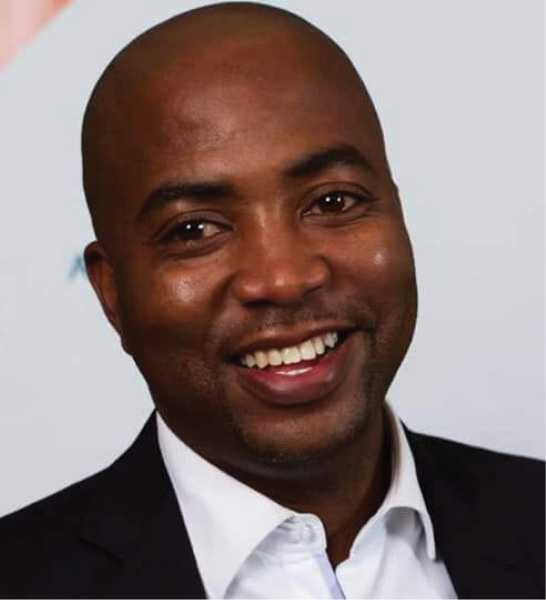
The Taung Men Against Gender Based Violence and Femicide Forum helps gender-based violence (GBV) victims avoid secondary victimisation and access psychological support services.
Founder and chairperson Tebogo Mokgejane says they help victims of rape, assault and other forms of GBV. Mokgejane says the 131-member organisation facilitates ongoing counselling sessions with a Department of Social Development (DSD) counsellor for GBV victims.
“Victims of GBV go through a traumatic experience and we help them access the sort of psychological services that are often not available on a daily basis. The DSD often has only one session for GBV victims so we get them to offer ongoing counselling services. People who are victims often find it difficult to open up the first time so the ongoing sessions allow people the chance to speak,” says Mokgejane.
He adds that the continuous counselling sessions help GBV victims prepare for the court process that they will have to go through. “Testifying in court requires that a witness recall details of a trauma that they would often like to forget.
“We put pressure on law enforcement to thoroughly investigate GBV cases and arrest perpetrators. When suspects appear in court, we apply to be friends of the court (amicus curiae) on behalf of the victim. We use this platform to campaign against the granting of bail,” says Mokgejane.
The NGO organises men in 121 villages to go and support GBV victims in court. Transportation is also organised to and from court and police stations for a GBV victim.
He says: “A lot of cases are thrown out of court because the victims are not able to afford the transport costs and as an organisation, we make sure that they are always able to make it there.”
Mokgejane says men can teach their peers that GBVF is wrong. “Men can speak to their friends at a social level. It can be a chat between friends that makes it possible for them to address the issue.”
If you need assistance, find a representative of the NPO in one of the villages it is active in, or visit its Facebook page: Taung Men Against Gender Based Violence and Femicide Forum.
Taxis a safe space for GBV victims
Taxis a safe space for GBV victims SiboneloThe taxi industry in KwaZulu-Natal (KZN) has thrown a lifeline to victims of gender-based violence (GBV) by agreeing to intervene on their behalf in domestic disputes and to help them report any abuse.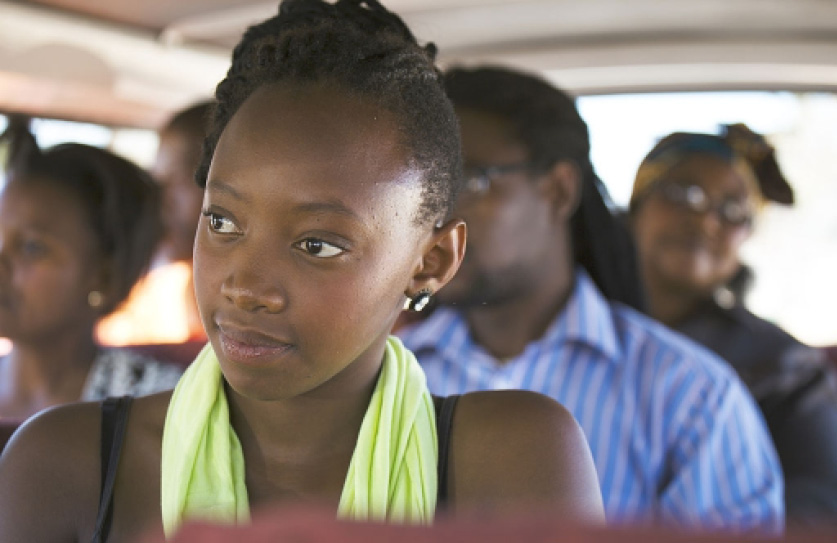
The programme is part of a partnership between the South African National Taxi Council (Santaco) and the KZN Department of Social Development (DSD).
Social Development MEC Nonhlanhla Khoza, Head of Department Nelisiwe Vilakazi and Santaco’s provincial chairperson Boy Zondi have signed a memorandum of understanding (MoU) that will see members of the taxi council become active role players in ending GBV.
According to the MoU, the DSD will teach commuters, taxi rank managers and marshals about GBV and the services offered by the department.
Khoza says the department will train drivers, queue marshals, taxi owners and other industry stakeholders to properly deal with GBV cases. She says after interactions with Santaco, her department was pleased to discover that the taxi council had already started a campaign to end violence directed at women.
Santaco will be responsible for the promotion of respectful and non-violent behaviour towards its customers, the prevention of sexual harassment and GBV and will promote gender equality and the safety of women at taxi ranks.
“We transport almost 16 million people [nationally] and it is important that our passengers are safe. We have also made recommendations that it must be law for all taxis to have cameras installed in them. We have a responsibility towards the safety of the passengers,” says Zondi.
Bashir Ismail, the spokesperson of the Chatsworth Minibus Association – one of the participating taxi bodies – says they advise that all incidents of GBV be reported to the police.
“At the police station, we go through the process of opening a case with a victim and then we take them to where they will be safe,” says Ismail.
Techno Girl opens the door to STEM careers
Techno Girl opens the door to STEM careers UrsulaHigh school girl learners in South Africa are being given a headstart in science, technology, engineering and mathematics (STEM), through a mentorship and skills development programme called Techno Girl. 
Techno Girl is a collaboration between UNICEF; Department of Women, Youth and Persons with Disabilities; the Department of Basic Education and the State Information Technology Agency.
Wycliffe Otieno, the Chief of Education at UNICEF South Africa, explains that the project gives girls from Grade 9 to Grade 11, selected from disadvantaged communities, the chance to take part in job shadowing, mentorship and skills development in the public and private sectors.
“The job shadowing programme provides girls with first-hand, insider information into what their career of interest involves. It motivates girls to develop a personal action plan to study further to secure a job of interest,” says Otieno.
Siphokazi Dayimane (23) from the Cape Flats was part of the Techno Girl programme in Grade 10 and has since gone on to make a success of herself. She started job shadowing at PetroSA in Mossel Bay, and then won a bursary to study a Bachelor of Science in Chemistry and Biochemistry at the University of Cape Town.
“Being part of the Techno Girl programme was a blessing for me; it gave me hope where the future was dark. Not only did I receive a bursary, but I was more informed on career choices and what I wanted to study. The programme groomed me, and it was easy for me to follow my dreams and goals because I have seen role models in the workplace during my job shadowing days,” says Dayimane.
After graduating, Dayimane was selected to be part of the PetroSA Graduate in Training Programme in 2020.
“My dream is to inspire more young girls to become scientists and offer job shadowing opportunities to them when I work at PetroSA. I’m looking forward to showing them that anything is possible if you put your mind to it and trust the people who believe in you. I’m proof that anyone can make it!”
Dayimane is also part of the 100-UP project, a programme that helps school learners from disadvantaged backgrounds to get into university.
*Parents and teachers can find out more about getting learners involved in the Techno Girl programme by calling UNICEF South Africa at 012 425 4700.
There is help for struggling pupils
There is help for struggling pupils LondekileTeachers of pupils with multi-intellectual disabilities can help shape their future by offering effective guidance.
Pupils who struggle with basic things such as reading, writing or calculating are not incapable of learning but need to be pointed in the right direction, says education counsellor Portia King.
King says that teachers must look for signs that pupils are struggling, including an inability to keep up with other pupils when it comes to writing or understanding.
She says: “Pupils who have difficulty learning can show varying symptoms, such as not being able to spell [simple words] by the time they are in Grade Four. Some pupils struggle with numbers whilst also not doing well in subjects that don’t need a lot of counting.”
To ensure that a pupil with learning difficulties is helped, King suggests teachers engage with parents to develop a learning programme for the child. She says if this does not help, another option is to consider enrolling a pupil in a school where there will be less academic theory and more of a vocational learning programme.
“Pupils with learning difficulties can be best taught through vocational training as this is more of a practical education and artisan skills development programme than it is academic. With vocational education, pupils learn through doing more than they do from reading a book.”
A fitting example of how vocational training can assist pupils can be seen at Olympia School of Skills in George in the Western Cape. The 475-pupil school offers vocational education to pupils who have been identified as not coping at academic schools.
Principal Gerhard Haupt says that the school hones the artisan skills of its pupils. Haupt says: “We take pupils from the age of 15 years who have been identified as having learning difficulties. Pupils are identified by teachers at primary school level. The teachers recommend pupils for enrolment at our school through the Department of Basic Education’s (DBE) district office in the Southern Cape.”
In order for a pupil to be enrolled at the school, a teacher must contact the district DBE office, which will then do an assessment to determine if the child should be enrolled there.
In addition to having learning difficulties, a learner must have failed twice at primary school level for them to be considered for enrolment.
Once enrolled, pupils will be taught vocational subjects such as needlework, bricklaying, agriculture and welding, as well as mathematics and life skills.
Universities to re-open between March and April
Universities to re-open between March and April SiboneloHigher education is the latest sector to delay its re-opening dates with 16 universities still finalising their academic year.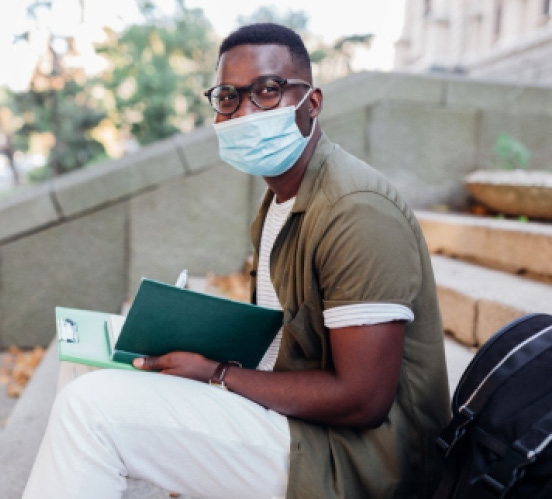
Addressing the media recently, Higher Education, Science and Innovation Minister, Dr Blade Nzimande, announced that universities will start the academic year between early March and mid-April.
The re-opening of higher education institutions is also aligned with the start of the 2021 academic year for first-time entries with the availability of Department of Basic Education National Senior Certificate (NSC) examination results.
Minister Nzimande says it is critical to ensure that the necessary health and safety protocols are in place for the registration period at universities and this will require clear and timeous communication with returning and new students.
According to the Minister, significant efforts have been made across all institutions to ensure that a fair opportunity has been provided to all students to complete the 2020 academic year.
“This has included an inevitable extended period into the 2021 calendar year for the majority of institutions.”
In addition, the department has provided support to institutions through the re-prioritisation of funds into a COVID Responsiveness Grant.
This grant supported universities to implement multimodal teaching and learning plans and campus safety plans.
“As a department, we are continuing to monitor institutions to keep track of academic and health and safety matters.”
NSFAS students
National Student Financial Aid Scheme (NSFAS) beneficiaries continued to receive their funding during the academic year, which provides vital support to many students.
“Although the available funding at NSFAS is severely constrained, we will continue to provide living allowances to those students who qualify for the period of the extended academic year.”
Meanwhile, the national framework on tuition and accommodation fees has ensured that additional costs for students have been kept to a minimum.
CET colleges
Teaching and learning at Community Education and Training Colleges (CET colleges) will now start on 15 February 2021, when the schools open their gates again.
“Given the changes from DBE, as a department, we will provide the CET colleges with a revised academic calendar after consulting the revisions in the DBE’s calendar.”
The Minister also announced that the National Treasury has approved R45.7 million to be transferred to CET colleges during the 2021/22 financial year as an earmarked allocation for cleaning services. – SAnews.gov.za
Vaccinate animals against Rift Valley Fever
Vaccinate animals against Rift Valley Fever SiboneloThe Department of Agriculture, Land Reform and Rural Development has reminded owners of cattle, sheep and goats to vaccinate their animals against Rift Valley Fever (RVF).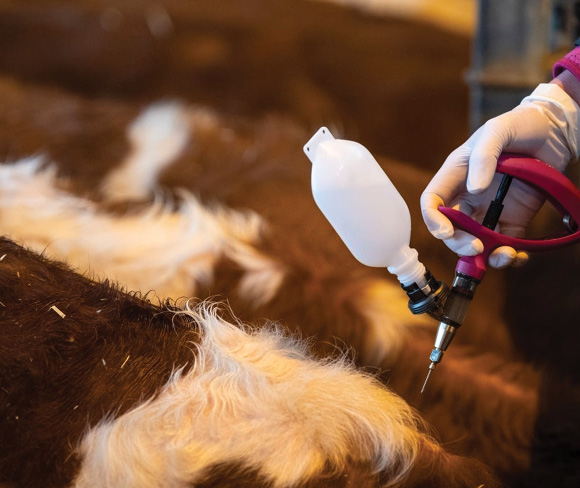
The department warned that the recent good rainfall in certain areas of the country will result in an increase in the numbers of mosquitoes that transmit this disease.
RVF is a serious viral disease that is spread through mosquitoes. It causes abortions and death in young cattle, sheep and goats. People coming into contact with the blood and other body fluids of infected animals can also develop RVF.
“Farmers are therefore advised to vaccinate all cattle, sheep and goats against Rift Valley Fever. Live vaccine (OBP Live) can only be used in non-pregnant animals, to as the live vaccine can cause abortions.
“Only dead/inactivated (OBP) vaccine must be used in pregnant animals. It is the responsibility of the animal owners to vaccinate their animals and prevent loss,” the department says.
Any suspicion of RVF must be reported immediately to the nearest State veterinarian. – SAnews.gov.za
Visit Cape Town’s pocket-friendly destinations
Visit Cape Town’s pocket-friendly destinations Ursula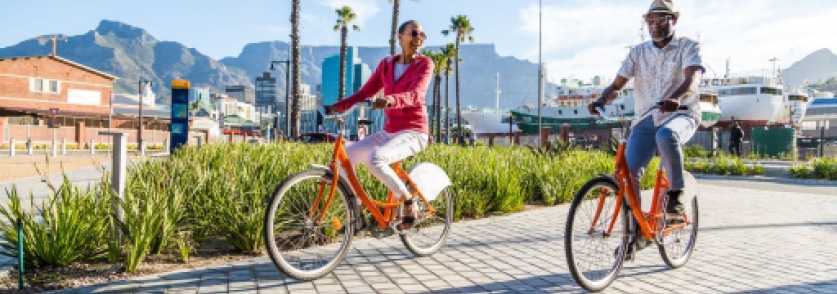
Cape Town Tourism ran the Pocket-Friendly Challenge to show locals and travellers that Cape Town is a destination for everyone, no matter what your budget is.
“Everyone has been hit hard by the Coronavirus pandemic and people are battling in the current economy,” says Leigh Dawber, Marketing Executive of Cape Town Tourism (CTT).
“Our latest CTT Consumer Impact Report confirms that finances are one of the biggest concerns for travellers. We have also seen over the past few months that there has been a drastic change in the attitude of consumers towards travel, with almost half of our survey indicating that they would strongly consider travelling within their country – which is up by 42%,” she adds.
For these reasons, CTT showcased a pocket-friendly Cape Town, highlighting value-for-money experiences.
In partnership with TravelStart, the Pocket-Friendly Challenge features a series of six two-minute episodes of travellers exploring Cape Town’s neighbourhoods with a set budget of R150 per person.
“There is a little bit for everyone, whether you are a solo traveller or a family, couple or group of friends, with experiences ranging across various themes including food, entertainment, heritage, nature and culture,” says Dawber.
In Langa, you can learn to drum, shop for local crafts, take in some street art and experience local food. Kalk Bay offers legendary fish and chips, amazing shopping bargains and secret playgrounds; while Blouberg provides a picture-perfect view of the mountain, beach picnic opportunities and even a surfing lesson (when Coronavirus lockdown regulations allow). You can also head to Athlone to sample some of Cape Town’s famous street food and shop for famous Cape Malay spices.
“We ensured that the groups are diverse and represent the culture and fabric of Cape Town and South Africa as a whole,” says Enver Duminy, CEO of CTT.
Alderman James Vos, the MEC for Economic Opportunities, Asset Management and Tourism at the City of Cape Town, says the campaign was important for tourism and local businesses.
“We are committed to diversifying our tourism landscape in Cape Town by promoting products and attractions throughout the city and, by doing so, breaking the perception that tourism is only centred in certain parts of the city and around the main attractions.”
Watch the full pocket-challenge series at www.capetown.travel/the-pocket-friendly-challenge. For a list of 50 things to do in Cape Town for under R50, visit www.capetown.travel/50-things-to-do-for-under-r50-in-cape-town.
Woman tailor’s bright future for herself and others
Woman tailor’s bright future for herself and others UrsulaA dream to lift women out of poverty has given birth to an award-winning business. 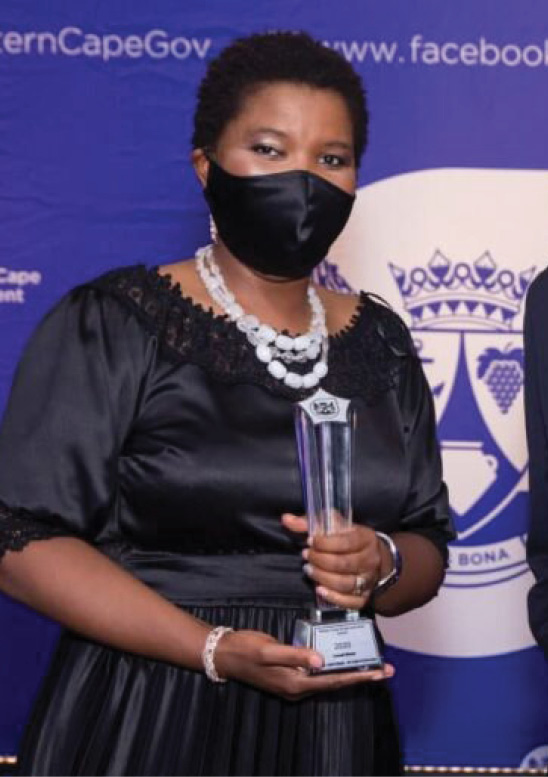
Businesswoman Ntomb- ekhaya Nonxuba (44) received the Woman-owned Business Award and went on to be named the Entrepreneur of the Year at the recent Western Cape Entrepreneurship Recognition Awards for her uniform-making business, Rise Uniforms.
Seeing snaking queues of young women collecting social grants, Nonxuba was moved to start a business that would help give these women stable jobs. She and her partners started out making shopping bags in 2007 before branching into the manufacture of school and church uniforms.
“I was disturbed by the number of young girls I saw waiting for social grants on my way to work. I wanted to start a business that would give people in my community a chance at making a decent income. That is why my business is located in Philippi township.
“The business currently employs 56 people, the majority of whom are young women from the township we are based in. These are young women who have children to support so the income they get from this job stimulates the local economy,” says Nonxuba.
Rise Uniform – owned and managed by Nonxuba – supplies uniforms to Pick n Pay and Boxer Superstores while a sister business, Rise Apparel, manufactures everyday clothes. In addition, disposable hospital gowns and N95 face masks are being manufactured using a high-end machine that was bought with R10 million funding from the National Empowerment Fund (NEF).
“We started manufacturing face masks to boost our business, which had suffered when the lockdown was declared in March.”
Nonxuba says when she started her business, she made branded Pick n Pay shopping bags for the supermarket, which helped raise the money needed to start making uniforms.
To get NEF funding, Nonxuba says businesses must first find out what funding opportunities are available.
She also recommends that entrepreneurs have a proper business plan before applying for funding. “A business plan must have details of what you are going to use the funds for; how the funds benefit the business and local communities; and who you are employing and will employ once you get funding. This will help show that funding you will be a good investment,” says Nonxuba.